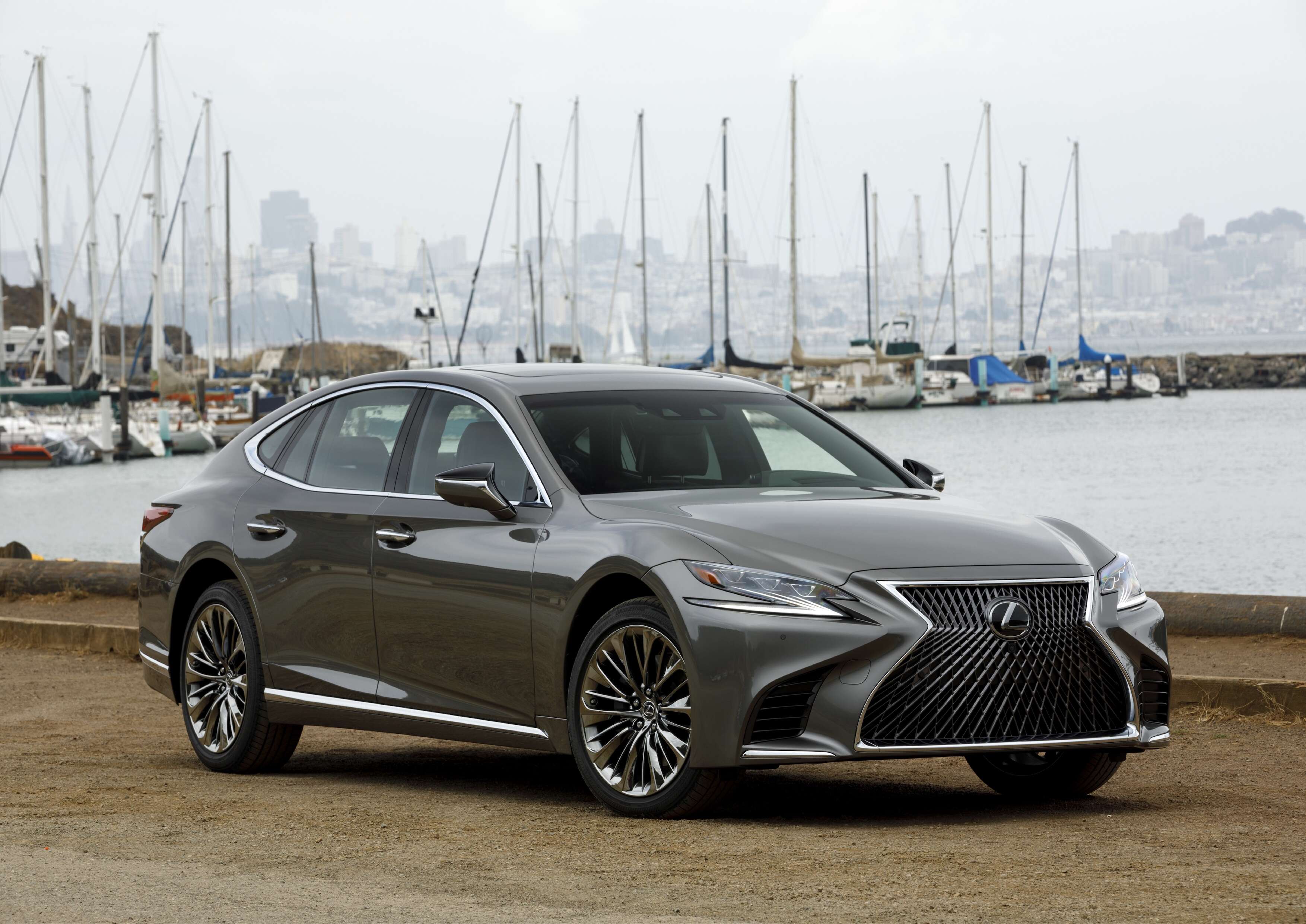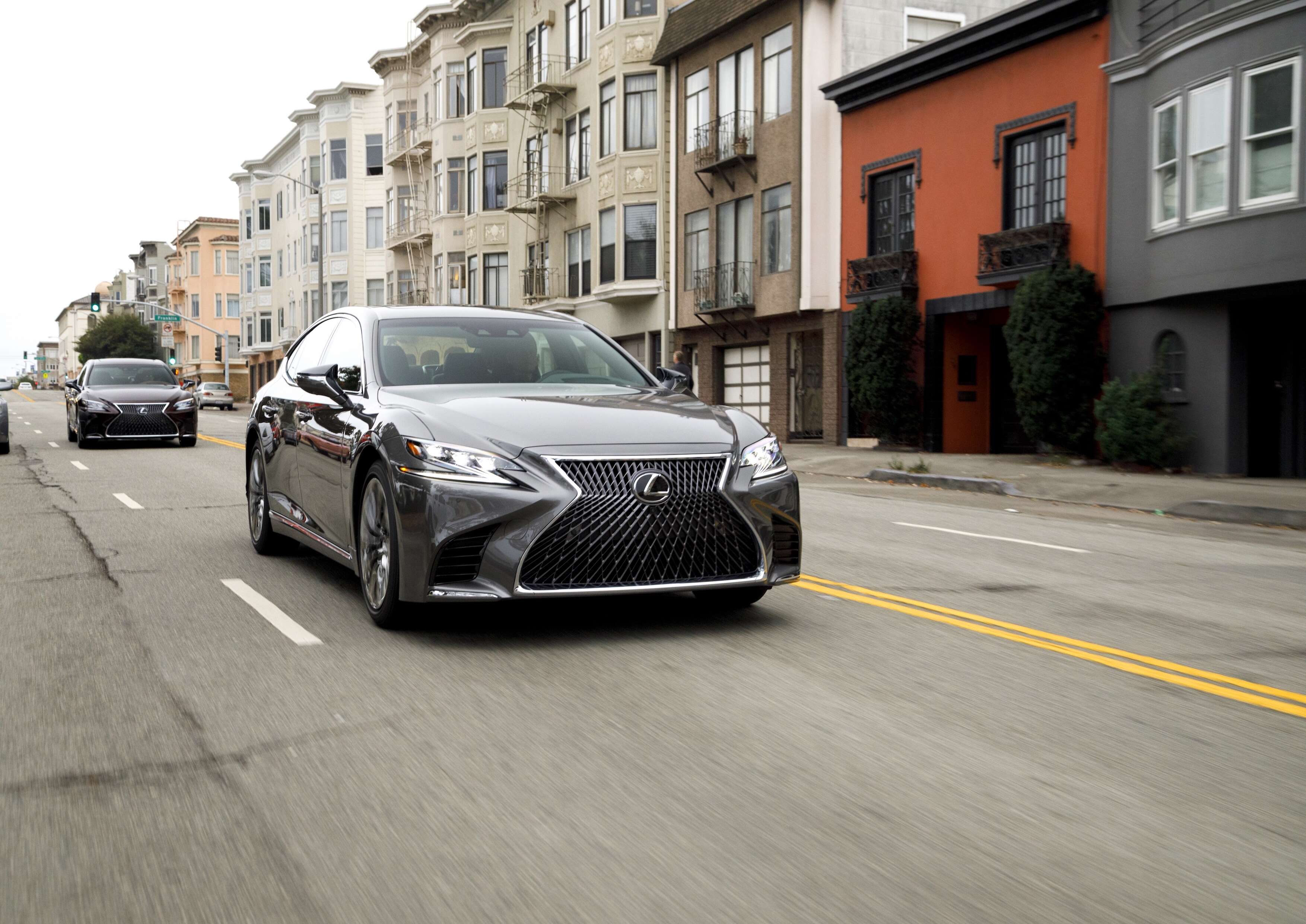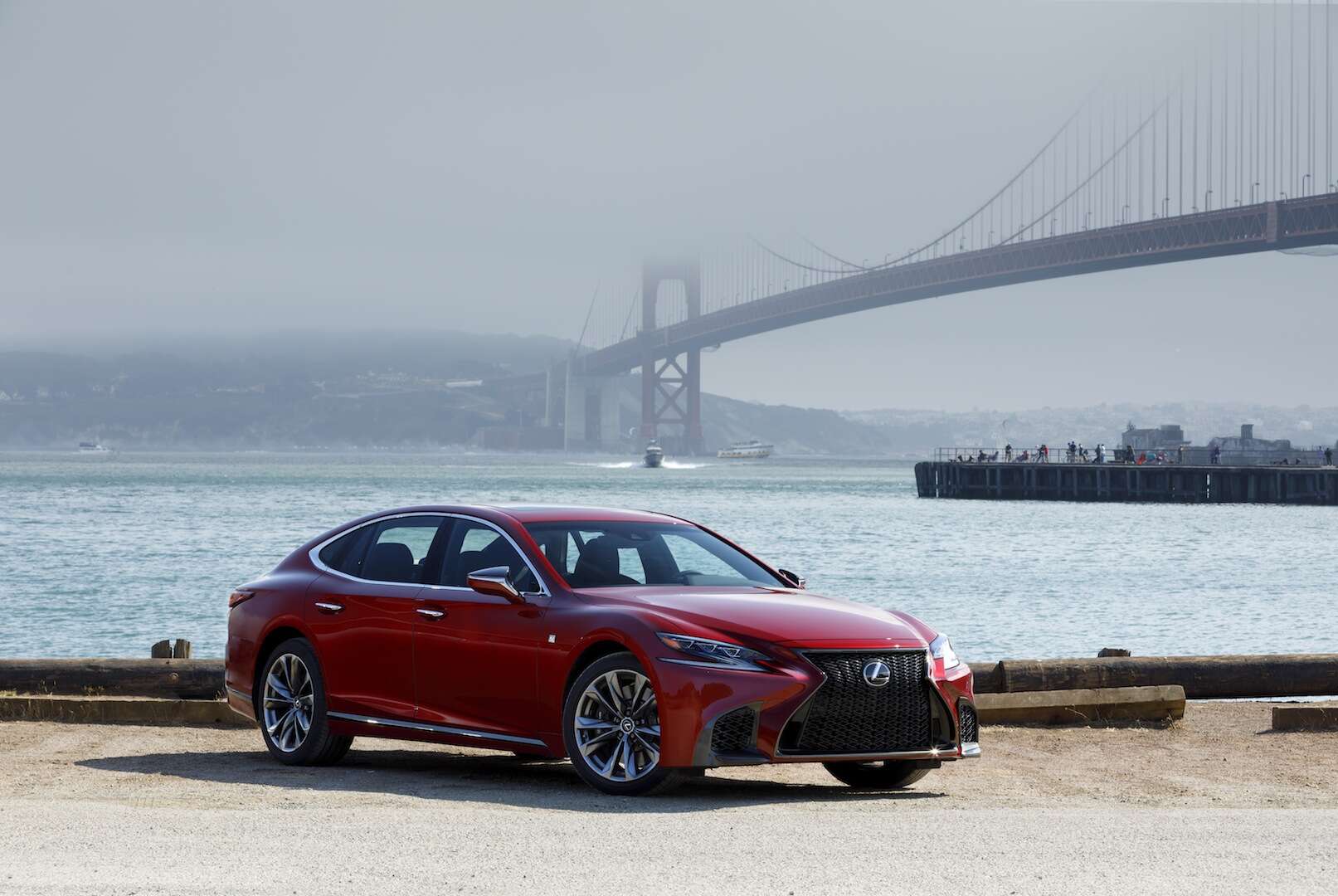Americans Don't Want Sedans, Right? Then Why Have Lexus LS Sales More Than Doubled?
The all-new LS is proving that sedans, properly executed, can hold their own against SUVs in showrooms.
The sedan is dead, goes the conventional wisdom. If it’s not an SUV, you might as well write the eulogy—alas, Chevrolet Impala, we knew ye well—and fill the grave in with a backhoe. But not so fast, says
Lexus: The LS, the flagship of Toyota’s luxury brand, is proving a bona-fide hit in the United States, defying the idea that Americans want nothing to do with traditional four-doors.
Apparently, more consumers are cool with Lexus’s “spindle grille” than we ever imagined. Despite the brand’s controversial, hourglass-shaped face—and in Lexus’s view, partly because of it—the all-new LS saw its sales skyrocket 127 percent in 2018 in the United States, to 9,302 buyers. Among flagship luxury sedans, that was second only to the perennial champ, the
Mercedes-Benz S-Class, which delivered 14,978 sales. That robust showroom reception makes the LS a real outlier: Sales of most sedans in America are withering in the face of an SUV onslaught. Ford and Fiat Chrysler view the trend as so irreversible that they plan to stop building sedans entirely.
LS sales are booming, second only to the Mercedes S-Class among top-tier sedans
But not so at Toyota and Lexus, which continue to invest heavily in new sedans, seeing them as a strategic hedge in an often-volatile marketplace, including against a potential fuel-price spike that historically finds buyers fleeing SUVs for smaller and more fuel-efficient cars.
“It’s a much stronger position to have cars in your lineup, even if sales volumes are smaller today,” Lexus spokesman Ed Hellwig said. Even in a shrinking segment, “some people find the sedan experience superior,” he said, including buyers in multi-car households who see sedan pluses in smaller size, energy efficiency, or maneuverability.
“People may realize, ‘I don’t need two SUVs,’ or they just don’t want to drive one every day,” he said.
For some perspective: the new LS replaced an especially staid and aging version, so some sales bump was to be expected. And this sedan will likely never match the phenomenon of the original LS 400, the groundbreaking model that launched the Lexus brand in 1989. That 1990 LS brazenly mimicked a Mercedes S-Class, aside from a $35,000 base price that undercut the Benz by tens of thousands of dollars. Nearly 43,000 Americans snapped up an LS in 1990, by far its best year in history.
Still, for today’s LS to more than double its sales over last year's version speaks to something more than plucking low-hanging fruit. In the current anti-car climate, most all-new sedans are failing to budge the sales needle. The ever-popular Audi A4 was redesigned for 2017, yet its sales have been down slightly for two straight years versus 2016, the final year of the previous-gen version. Most shockingly,
Honda’s blue-chip Accord, despite a tsunami of critical acclaim, saw its sales plunge 9.7 percent last year, to just over 291,000 units.
Lexus is too polite to say “I told you so.” But the success of the LS, along with its origami-creased RX SUV and striking 2019 ES sedan, appears to be vindicating the
“no more boring cars” strategy of Akio Toyoda, the global head of Toyota Motor Corporation—a pledge that struck some observers as PR fluff when Toyoda first made it. Love the look or hate it, let’s give Lexus—so often condescended to by driving enthusiasts and Europhiles—its due. From its lean, chiseled fuselage to a dramatic new interior, the LS’s audacious design has clearly been a factor in its comeback. Like it or not, the spindle grille literally fronts that design.
Lexus won't bar the grille: Brand remains committed to its spindle-shaped design
The chin-scraping, honeycombed design element sparks less outrage overall than it did in 2012, when, as
The New York Times auto critic, I first
coined the “Predator face” reference that’s stuck to these cars’ savage mandibles ever since. Newer, clean-sheet Lexus models—especially the inarguably lovely LC Coupe, but also the LS—are doing a smoother job of integrating the grille, including its complex, spider-webbed geometries. In the interest of peacemaking, it’s helpful to recall that myriad cars and design elements have outraged traditionalists at first, only to be steadily accepted (and even loved) by owners, or emulated by other automakers. A short list would include the notorious “flame surfacing” BMWs of former chief designer Chris Bangle, the oversized freight-train grille of Audis, and pretty much any update to the Corvette or Mustang. Wait a few years, and one hardly knows what the fuss was all about.
Lexus seems to subscribe to the idea that there’s no such thing as bad publicity. “If people are talking about it, that’s good,” Hellwig says of the infamous grille. “They’re at least recognizing at as something unique to the brand. The whole point was to make the cars stand out, and now it’s already blending in.”
Of course, there’s more to the LS’s robust sales than styling, or dramatic interior design. The LS continues to beat its Teutonic rivals on price: The $80,735 base fare undercuts a BMW 740i or
Audi A8 by roughly $4,000, and a Mercedes S450 by $11,500. With
its lusty 416-horsepower, twin-turbo V-6, the LS 500 is faster, and has decisively more power, than any of those V-6-powered German rivals. (Now, if Lexus could only fix its dysfunctional trackpad infotainment interface). And while European brands convey status through pedigree, design, and performance, there’s continued power in the Lexus name as well: The brand’s lofty reputation for reliability, resale value, and hassle-free dealer service could prove compelling to a dwindling set of sedan buyers, making it easier to retain loyalists or lure customers from other brands. Among such highly expensive sedans, buyers will never lose sleep over choosing the Lexus.
LS's athletic exterior greatly improves on its potato-bland predecessor
So is the LS’s success an anomaly in the moribund four-door market, or something more?
The all-new Lexus ES sedan, which went on sale in September, should help answer that. Like the LS, the aggressively styled ES replaces a version that was as beige and boring as sedans come. Again defying the SUV
zeitgeist, Lexus confidently predicts that the ES will find 50,000 annual buyers. That would be an increase of more than 20 percent, and a solid, profitable showing for an entry-luxury sedan in any era. For comparison: In 2018, Cadillac’s four sedan models, the ATS, CTS, CT6, and XTS, sold just under 50,000 units—combined.
The lesson, it appears, is that success is not necessarily about having a showroom full of sedans (or depleted of them). It’s about having the
right sedans. I'll continue to argue that several sedans that were showroom duds—including the Chrysler 200, Dodge Dart, and
Jaguar XE—should be chalked up as failures of execution, rather than evidence that all sedans are doomed. The LS has staged an impressive comeback among flagships, but the brand's smaller IS and GS sedans continue to struggle. And let's not forget that America's best-selling luxury model of any type is now a sedan, the
electric Tesla Model 3, which topped Lexus's RX for the overall title and the BMW 3 Series among cars. That speedy, California-built Tesla suggests that electrification could provide a market jolt for other sedans, whose relatively modest size, weight, and favorable aerodynamics make them ideal candidates for battery propulsion. Lexus itself continues to hybridize its sedan models, including the LS, and now BMW, Mercedes, and Audi are racing to electrify their own four-door car lineups.
The real canary in the coal mine may be that BMW 3 Series. The once-unchallenged king of sport sedans has suffered a bruising fall in showrooms. It’s been supplanted in popularity by not one but
two BMW SUVs, the X3 and X5. A new and markedly improved
3 Series arrives in spring, including a kickass M340i that I drove in Portugal. If that 3er can recapture some of its sales mojo, it’s a good omen for the four-door cars that once dominated the driveways of America.
“For a long time, getting an SUV was ‘different,’” Hellwig says. “But it wouldn’t be surprising if people started to grow tired of them, and gravitated back to sedans.”
It’s only a theory, of course. But four-door fans can always dream.




